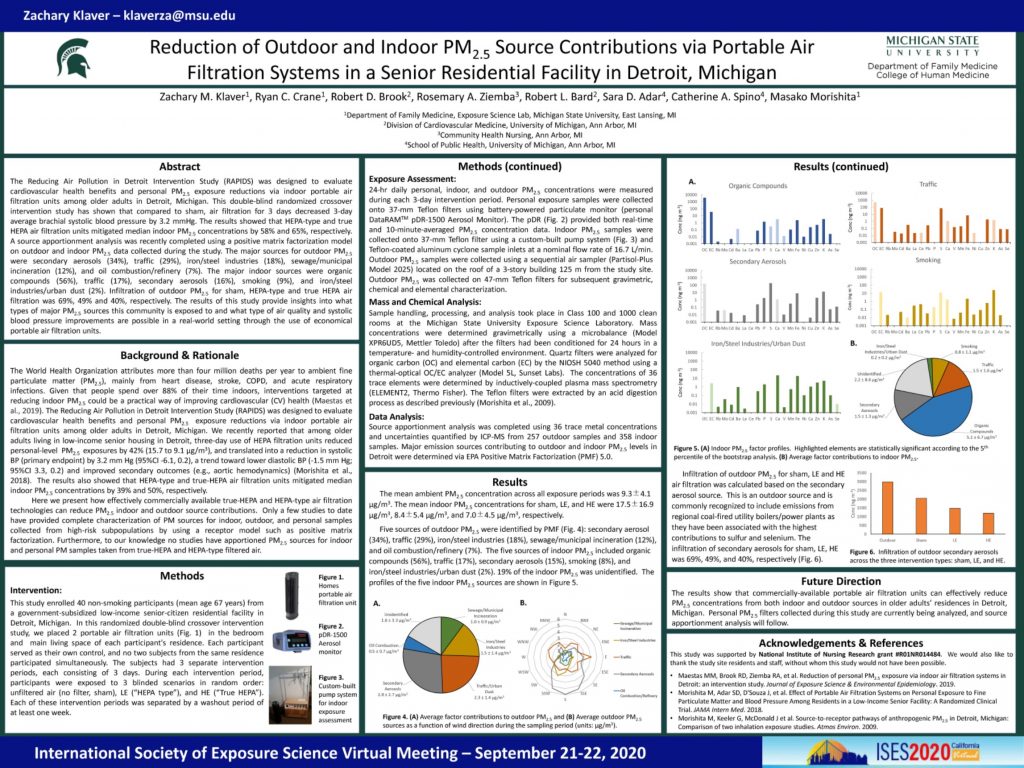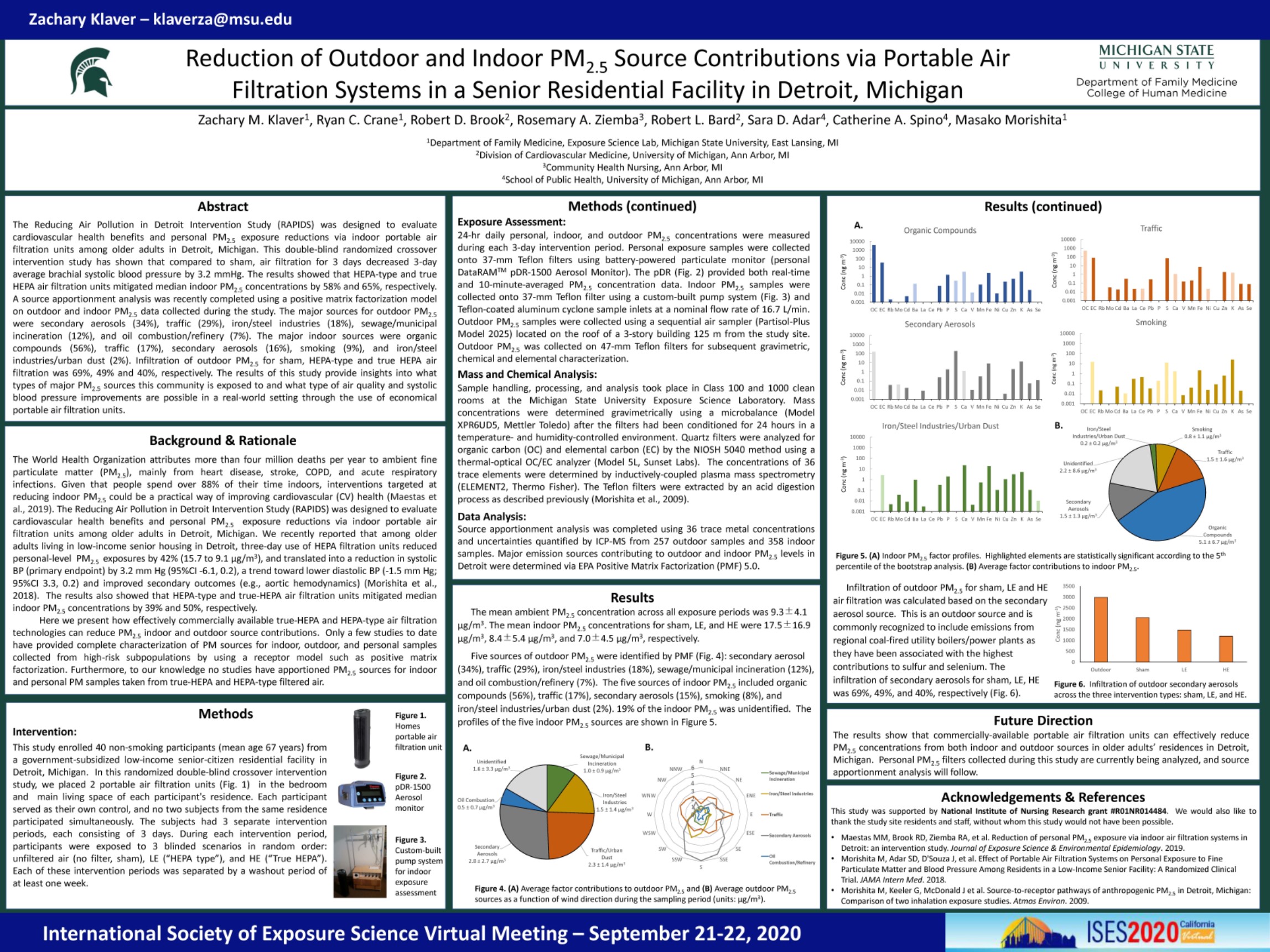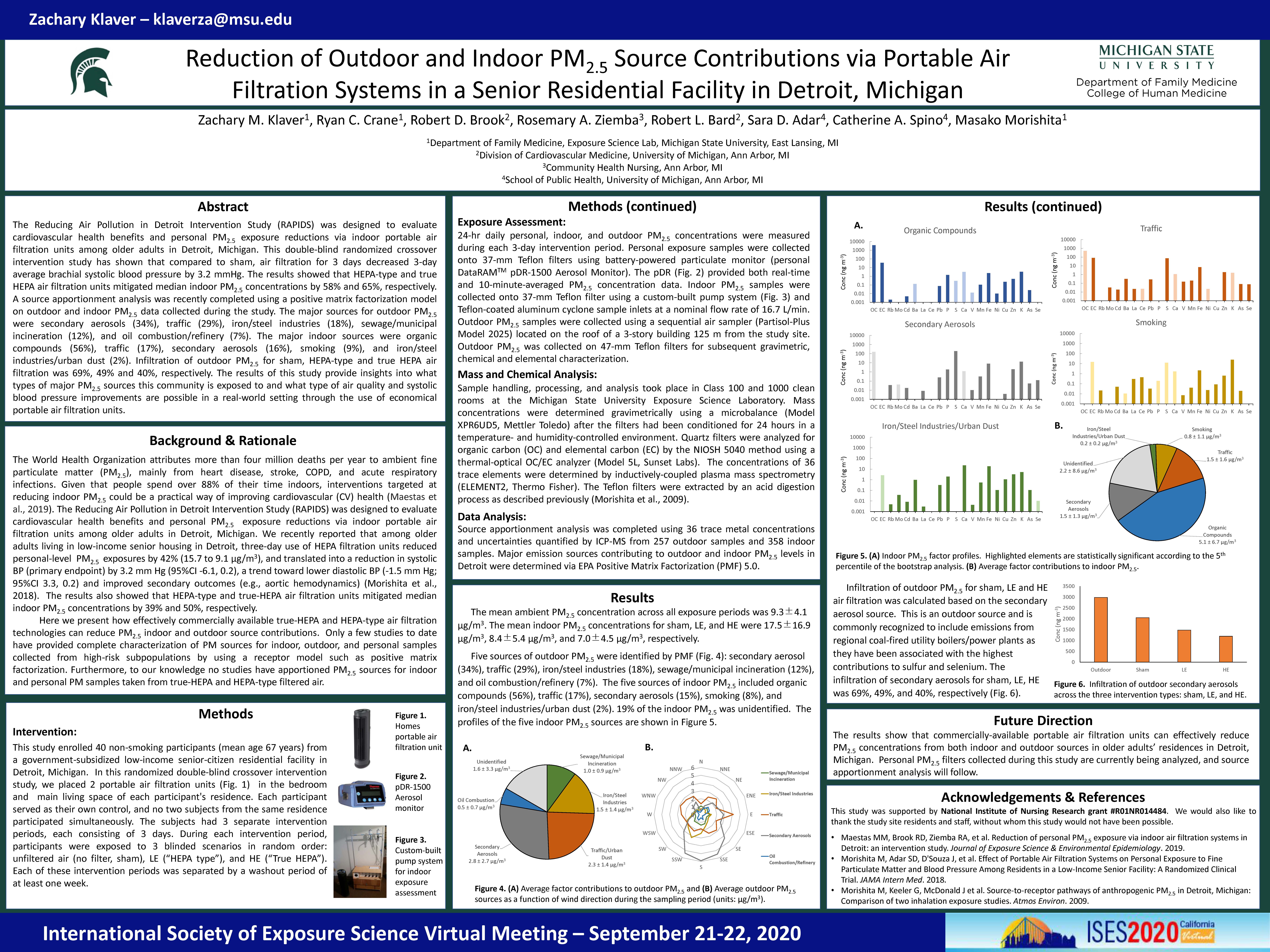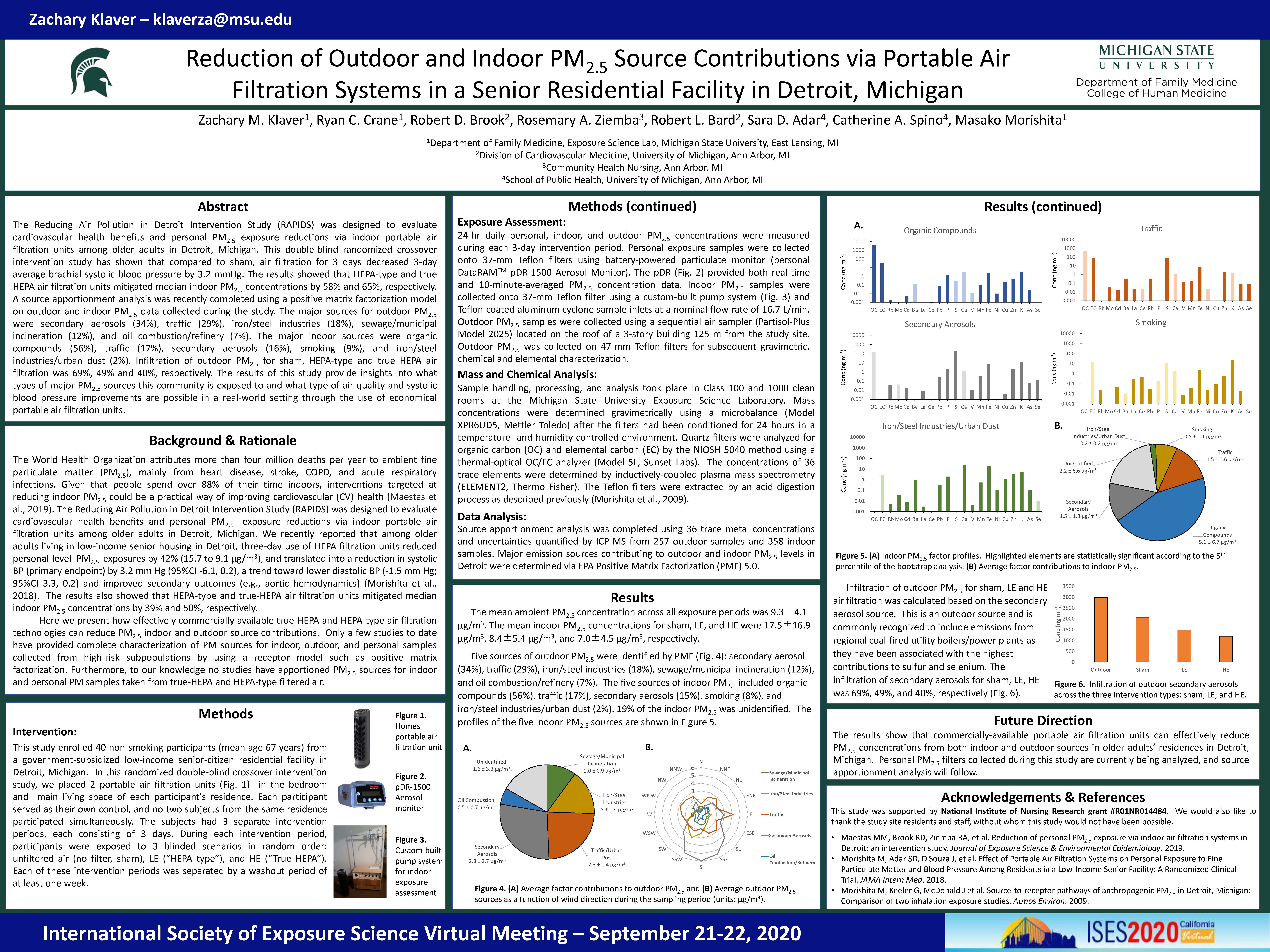Posted
in Research
Person:
The World Health Organization attributes more than four million deaths per year to ambient fine particulate matter (PM2.5), mainly from heart disease, stroke, COPD, and acute respiratory infections. The Reducing Air Pollution in Detroit Intervention Study (RAPIDS) was designed to evaluate cardiovascular health benefits and personal PM2.5 exposure reductions via indoor portable air filtration units among older adults. We recently reported that among older adults living in low-income senior housing in Detroit, three-day use of HEPA filtration units reduced personal-level PM2.5 exposures by 42%, and translated into a reduction in systolic blood pressure by 3.2 mmHg. For this poster, we presented how effectively commercially available true-HEPA and HEPA-type air filtration technologies can reduce PM2.5 indoor and outdoor source contributions. Infiltration of outdoor PM2.5 for sham, HEPA-type and true HEPA air filtration was 69%, 49% and 40%, respectively. The results of this study provide insights into what types of major PM2.5 sources this community is exposed to and what type of air quality and systolic blood pressure improvements are possible in a real-world setting through the use of economical portable air filtration units.




